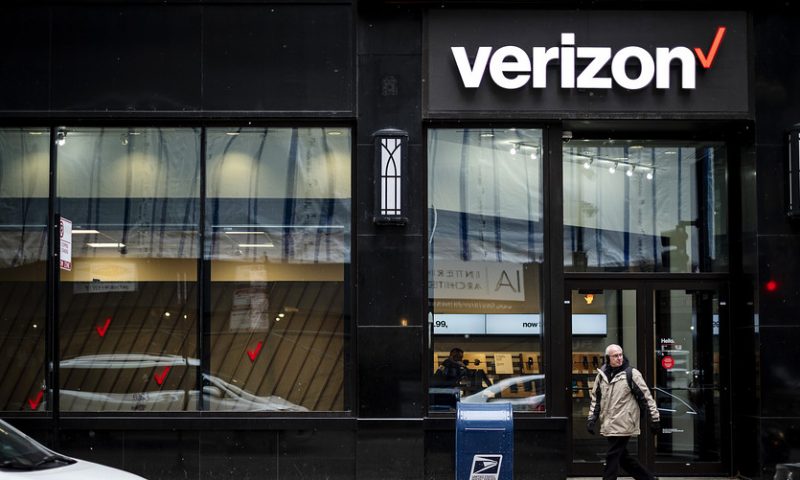The wireless market is getting more competitive even before the big 5G wave, says an analyst
Verizon Communications Inc. has fewer distractions than its rivals, but it also has fewer places to hide.
That was on display Thursday as the telecommunications giant delivered fourth-quarter results that MoffettNathanson analyst Craig Moffett said were the “mirror image” of AT&T Inc.’s T, -0.29% numbers from a day earlier. Verizon VZ, -0.19% sported revenue growth but also an increase in capital expenditures, the opposite of what AT&T posted.
Verizon’s stock was down about 1% in midday trading.
AT&T has a more complicated business than Verizon does, with DirecTV and WarnerMedia still sizable parts of the equation, but both telecom players depend on their wireless operations. For AT&T, wireless served as one of the bright spots in the company’s latest results amid some challenges in video. For Verizon, wireless makes up about three quarters of total revenue and the company saw top-line growth there as its wireline business shrunk.
The theme across both reports was that there’s heightened competition across the wireless industry, Moffett wrote. “Churn is rising and margins are falling, and the highly anticipated (feared?) 5G upgrade cycle hasn’t even started yet.”
These trends seem especially important for Verizon, he continued, given the company’s dependence on wireless revenue. The carrier stepped up its promotions in the fourth quarter and while that led to an acceleration in subscriber growth, it was also costly, contributing to an “unexpected” drop in earnings before interest, taxes, depreciation, and amortization.
Other analysts flagged the trend as an area of interest.
“Service revenue growth of 2.7% missed consensus of 3.1% despite the promotions,” wrote Instinet’s Jeffrey Kvaal, who rates Verizon shares at neutral with a $65 target. “[Average revenue per user] of $138.07 was $0.50 shy of consensus. We had assumed the promotions were designed to boost [average revenue per account].”
Citi’s Michael Rollins chimed in that he “would like to see a stronger financial flow-through from [Verizon’s] promo activity,” while keeping his neutral rating and $62 target on the stock.
Moffett said that Verizon was smart to focus on wireless while its peers muddied themselves in acquisitions, but he’ll be watching how the company positions itself at the 5G wave becomes a bigger deal. One concern is that Verizon bet big on millimeter-wave spectrum, which is expected to drive faster speeds in dense urban areas but have limited applicability elsewhere.
Verizon’s “overreliance on millimeter-wave spectrum and lack of mid-band spectrum threaten their positioning of network superiority,” he wrote, something that’s “already showing up in capex, as Verizon’s only available path, for now, is network densification.”
The company’s 5G strategy could become a marketing issue once more carriers come out with 5G phones and customers start to more seriously consider the devices, causing Moffett to reiterate his neutral stance and $58 target price.
“Yes, Verizon looks to us to clearly be in a better spot than AT&T,” he wrote. “But just being better than AT&T isn’t enough.”
Verizon shares have lost 3.2% over the past three months, as the Dow Jones Industrial Average DJIA, +0.43% has risen 5.1%.

